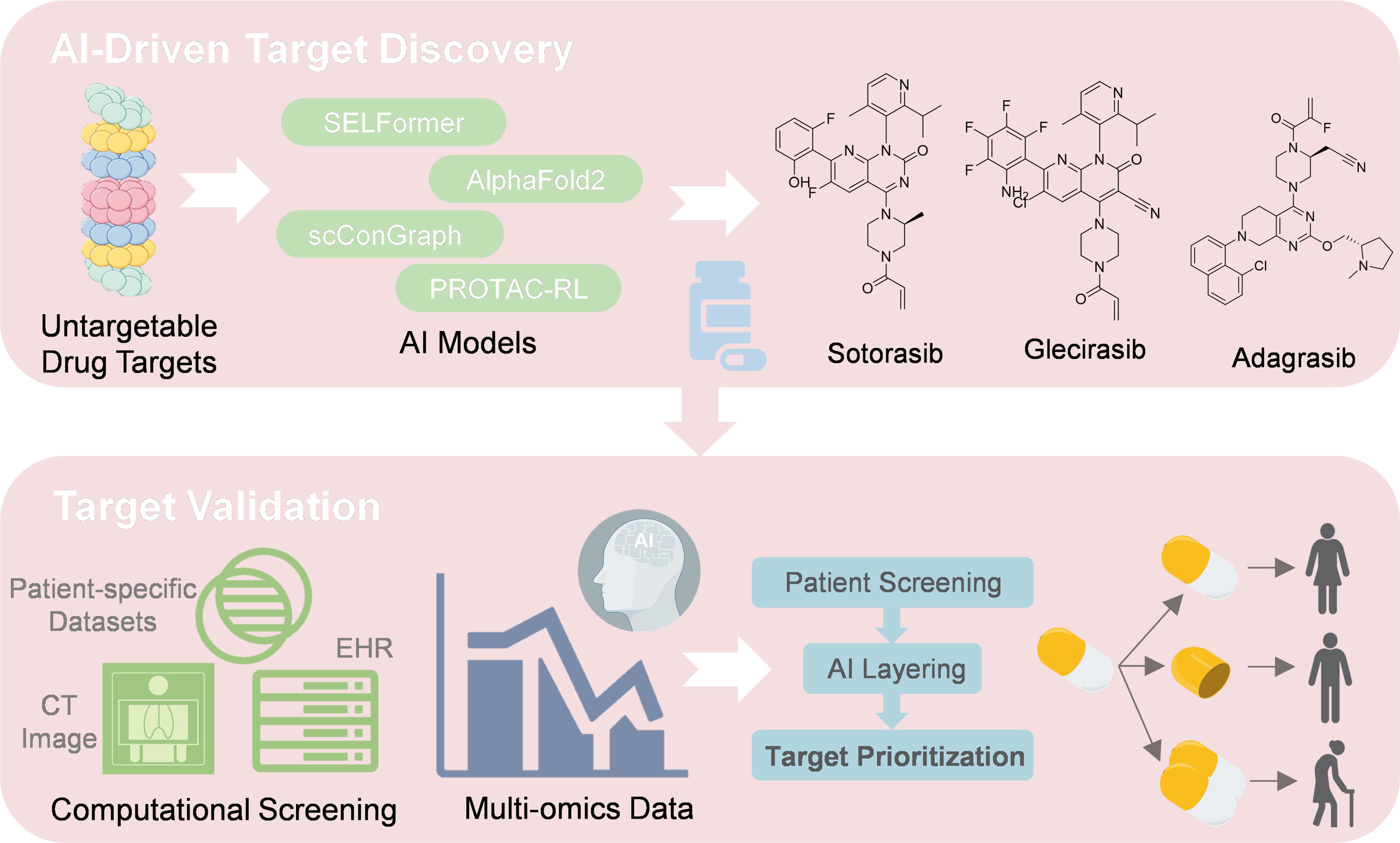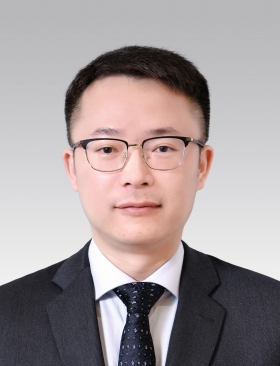Artificial intelligence (AI) is revolutionizing cancer research and clinical practice, with applications in early diagnosis, pathological imaging analysis, treatment decision-making, personalized therapy, drug development, and cancer management. By leveraging advanced techniques such as deep learning and machine learning, AI can integrate and analyze complex multimodal data, including imaging, genomics, transcriptomics, and proteomics, thereby extracting critical insights. This significantly improves the accuracy and efficiency of cancer diagnosis and optimizes treatment strategies. For example, in cancer biology research, AI excels at integrating diverse datasets and identifying patterns to uncover tumor heterogeneity and microenvironment characteristics while predicting responses to immunotherapies. In digital pathology and imaging analysis, deep learning models demonstrate remarkable capability in identifying complex image features and providing quantitative assessments. In drug discovery research, AI assists in identifying novel therapeutic candidates and repurposing existing drugs, substantially reducing development costs. Additionally, the automation capabilities of AI have proven highly effective in radiotherapy, alleviating the workload of medical professionals and improving the efficiency of treatment workflows. Despite these advancements, challenges remain in the translation of clinical practice, including limited model interpretability, lack of standardized technologies, and regulatory obstacles.
Looking ahead, AI holds significant promise with the integration of multimodal data, the development of personalized therapeutic approaches, and the refinement of decision-support systems. Enhancing the clinical validity and usability of AI models, establishing open data-sharing platforms, and implementing comprehensive regulatory frameworks are critical to facilitating its widespread application. In summary, AI is expected to bring breakthroughs to oncology, enabling personalized, precise, and intelligent solutions across the entire process of diagnosis and treatment, ultimately delivering more effective therapies to patients.
For this special issue, we invite front-line scientists and clinicians to submit high-quality scientific manuscripts (types: original research article, review, mini review, case report, etc.) regarding the applications of AI in Cancer Research. Potential topics include, but are not limited to:
1) AI for cancer biomarker discovery from genomics, epigenetics, transcriptomics, proteomics & liquid biopsies. 2) AI for cancer cell metabolism & microenvironment crosstalk analysis. 3) AI in diagnostic imaging of cancer. 4) AI in cancer target identification and validation. 5) AI in anticancer drug discovery and development. 6) AI in cancer vaccine & theragnostic design. 7) AI in cancer-immune system analysis & immunotherapy boost. 8) AI in optimizing cancer treatment: chemo dosage, personalized treatment plan.
Priority will be given to articles that provide significant contributions to advancing AI-driven cancer research, optimizing treatment strategies, and addressing challenges in clinical translation with a high standard of peer review. All publications will be open access to all readers, and all accepted papers will be highlighted in this special issue on our website. Publication date: An article will be published online as soon as it is accepted.
Mini Review

|
The Artificial Intelligence-driven Revolution in Solid Tumor Drug Development
Yi-Han Li, Jiang-Jiang Qin
Published online: July 31, 2025
doi:10.14218/OnA.2025.00009
|
|
|

|
Guest Editor-in-Chief
Jiang-Jiang Qin
|
Read More
|
|
Dr. Jiang-Jiang Qin is a Professor and Principal Investigator at the Hangzhou Institute of Medicine (HIM), Chinese Academy of Sciences. He also serves as the Deputy Director of the Center for Innovative Drug Research.
Dr. Qin has significant expertise in cancer biology, cancer pharmacology, natural product chemistry, and medicinal chemistry. His laboratory focuses on discovering new cancer biomarkers and drug targets by applying innovative bioinformatics approaches, elucidating the molecular mechanisms underlying the development, progression, metastasis, and drug resistance of human cancer, especially gastric and pancreatic cancer, and developing novel, effective, and safe anticancer agents by utilizing state-of-the-art technologies. Dr. Qin has established successful collaborations with basic and clinical scientists, physicians, clinicians, and industries. His long-term goals are to translate basic science discoveries into innovative diagnostic and therapeutic strategies, finally improving the care and management of patients with malignant tumors, especially gastric and pancreatic cancer. Dr. Qin has authored over 150 publications, including around 50 published as the first and corresponding author in high-impact journals, such as Cancer Cell, Gastroenterology, Nat Commun, Cancer Res, Adv Sci, Drug Resist Updat, Mol Cancer, J. Hematol. Oncol, etc.
|

|
Co-Guest Editor
Xuelei Ma
|
Read More
|
|
Dr. Xuelei Ma is a deputy chief physician in the Department of Biotherapy at West China Hospital. He also serves as the M.D. and Ph.D. Tutor at Sichuan University.
Dr. Xuelei Ma's work broadly concentrates on the exploration of the mechanism and treatment of tumorigenesis. At the level of artificial intelligence, he researched the applications of artificial intelligence such as imaging diagnosis and treatment evaluation of various tumors, pathological recognition and slice genotyping, as well as recognition technology in patient psychology and pain. As for the bioinformatics analysis and transcriptomics, he explored the mechanisms in tumorigenesis, development, and metastasis as well as immune-related mechanisms in different tumors. He is interested in the exploration of tumor microenvironment on the mechanism of tumor metastasis. For example, surgical stress stimulation promotes the EMT transformation of tumor cells and promotes metastasis, chronic stress psychological stimulation promotes the EMT transformation of tumor cells and promotes metastasis and exercise improves tumor microenvironment and reduces and slows down the process of tumor metastasis. He also focuses on clinical research including new diagnostic methods for lymphoma, exploration of immunotherapy and its comprehensive treatment in neoadjuvant treatment of esophageal squamous cell carcinoma, as well as the mechanism and treatment of side effects of immunotherapy.
|

|
Co-Guest Editor
Xiaoqing Guan
|
Read More
|
|
Dr. Xiaoqing Guan is a physician in the Department of Abdominal Oncology at Zhejiang Cancer Hospital, a recipient of the Zhejiang Provincial Outstanding Young Scientist Fund. She obtained her MD degree from Peking University and completed her postdoctoral research at the Hangzhou Institute of Medicine, Chinese Academy of Sciences.
Dr. Guan and her research team focus on the discovery of novel targets and the development of innovative drugs for gastrointestinal cancers, promoting the clinical translation of these drugs. She has published over 20 papers in international peer-reviewed journals, has led multiple projects funded by the National Natural Science Foundation of China, and is a member of the editorial boards of several scientific journals.
|

|
Co-Guest Editor
Sichao Tian
|
Read More
|
|
Dr. Sichao Tian obtained her doctoral degree from the Department of Chemistry at the National University of Singapore. She serves as a research associate at the Institute of Medicinal Plant Development, the Chinese Academy of Medical Sciences and Peking Union Medical College.
Dr. Tian specializes in the diagnosis and treatment of cancer, including cancer visualization, tumor microenvironment targeted therapy, and phototherapy. She is particularly interested in using advanced optical imaging techniques for tumor diagnosis and different phototherapy treatment strategies. Dr. Tian, as the first author or corresponding author, has published about 20 papers in SCI journals, including Nano Today, PhotoniX, Aggregate, Sci China Chem, etc. Additionally, she has led 6 domestic and international projects and obtained 5 application certifications. She has also received multiple honors and awards.
|
Important Dates
Submission open date: January 9, 2025
Submission deadline: October 31, 2025
Instruction for Authors
The authors should refer to the Instructions for Authors in preparing the manuscript and kindly submit it through the Online Submission System directly.
Instructions for authors:
Online submission system:
Please state in a cover letter that the manuscript is being submitted for inclusion in the special issue ‘Artificial Intelligence in Cancer Research’ and follow the usual OncolAdv instructions.
For any inquiries, please contact the journal by e-mail: oncoladv@xiahepublishing.com
|